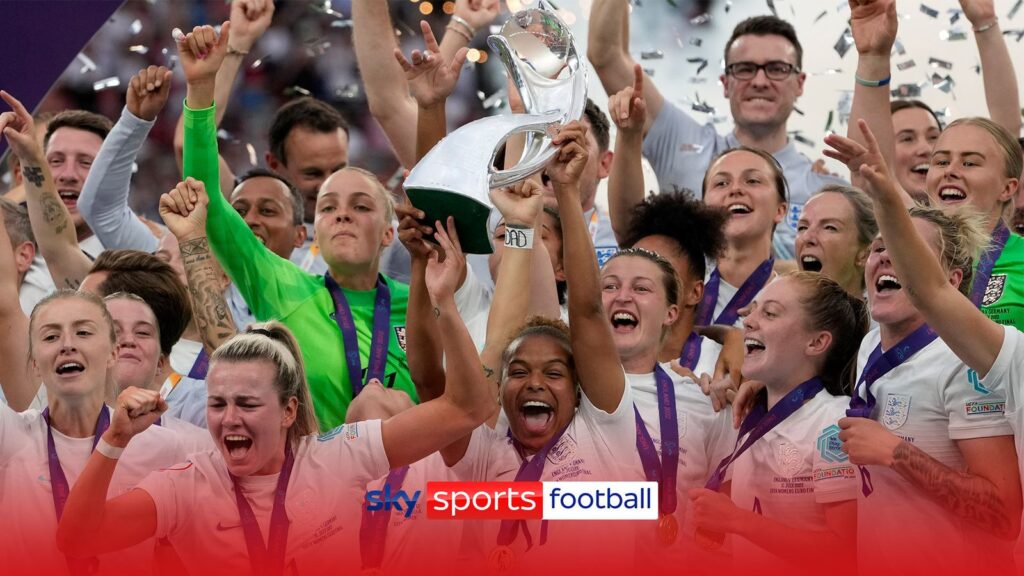A second major trophy for the Lionesses by 2028 is one of the top four priorities in the Football Association’s new four-year strategy for women and girls.
England secured their first major tournament title at the home European Championship in 2022, and will defend it next summer in Switzerland after qualifying in July.
Sarina Wiegman’s side reached a World Cup final for the first time in 2023 and will aim to go one better when Brazil host the tournament in 2027.
“It goes without saying, for the 2025 Euros and 2027 World Cup, our planning is absolutely meticulous,” said FA women’s technical director Kay Cossington, speaking at Wembley Stadium ahead of the strategy launch.
“We have to be really, really clear and super explicit about what we do and what we don’t do, what’s going to make the boat go fast and what’s going to sink the boat, and the bits in between are what often cause the most amount of noise, the most amount of stress and sleepless nights.
“How do we effectively prepare putting 23 players in a squad in a tournament to perform. How can we help players and staff perform under the greatest amount of pressure?”
Part of that comes, said Cossington, from ensuring players in the pathway are both physically and mentally prepared.
That includes building on experiences like the currently-running U17 Women’s World Cup. England play Spain in their first semi-final in 16 years on Thursday and just their second in the competition.
They have reached the last four in dramatic style, via a penalty shoot-out victory over Japan in the quarter-finals that followed a 4-2 comeback against Mexico despite going down to 10 players.
Cossington said: “Many of the senior Lionesses talk about the importance of tournament finals, so for the next four years it’s important that we regularly get our teams to tournament finals, but don’t confuse that with development.
“Of course you need to win tournaments but not at the sacrifice of developing a pathway and a pipeline that’s full of healthy players across the multiple different positions to service our senior team.”
The FA remains conscious of criticism that the Lionesses squad remains largely white but is optimistic that the composition of players in the pathway is beginning to better reflect society.
Cossington added: “That takes time, we can’t change it overnight. We can only select from the core players that we have available to us but what we’re proud of and what we’re confident of, and as you’ve seen over the last four years, is the shift and change.
“If you look at the playing pool that is available to select from (in the pathway), it’s different. So our hope is, by pure maths and growth, that will start to move through.
“Look at us in four years to eight years time and we hope that that will then start to move through to the senior team.”





